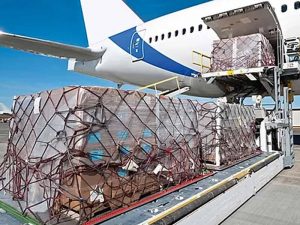COVID-19 takes toll on the air freight industry
The International Air Transport Association (IATA) recently released February 2020 data for global air freight markets showing that demand, measured in cargo tonne kilometers (CTKs), decreased by 1.4% compared to the same period in 2019.
 Adjusting the comparison for the impact of the Lunar New Year, which fell in February in 2019, and the leap year in 2020, which meant an additional day of activity, seasonally-adjusted demand was down 9.1% month-on-month in February.
Adjusting the comparison for the impact of the Lunar New Year, which fell in February in 2019, and the leap year in 2020, which meant an additional day of activity, seasonally-adjusted demand was down 9.1% month-on-month in February.
By February, the negative impacts of the COVID-19 crisis on air cargo demand were becoming visible. The month witnessed several significant developments:
- Manufacturing production in China, one of the world’s largest air cargo markets, dropped sharply due to widespread factory closures and travel restrictions.
- Global export orders fell to a historically low level. The global Purchasing Managers Index (PMI) is in contraction territory, with all major trading nations reporting falling orders.
- Significant cargo capacity was lost as a result of airlines reducing passenger operations in response to government travel restrictions due to COVID-19, severely impacting global supply chains.
Cargo capacity, measured in available cargo tonne kilometers (ACTKs), dropped by 4.4% year-on-year in February 2020. This is subject to the same distortions as the non-seasonally adjusted demand numbers.
“Among all the uncertainty in this crisis, one thing is clear—air cargo is vital. It is delivering lifesaving drugs and medical equipment whilst supporting global supply chains. That’s why it is critical for governments to remove any blockers as the industry does all it can to keep the global air cargo network functioning in the crisis and ready for the recovery,” remarked Alexandre de Juniac, Director General and CEO, IATA.
